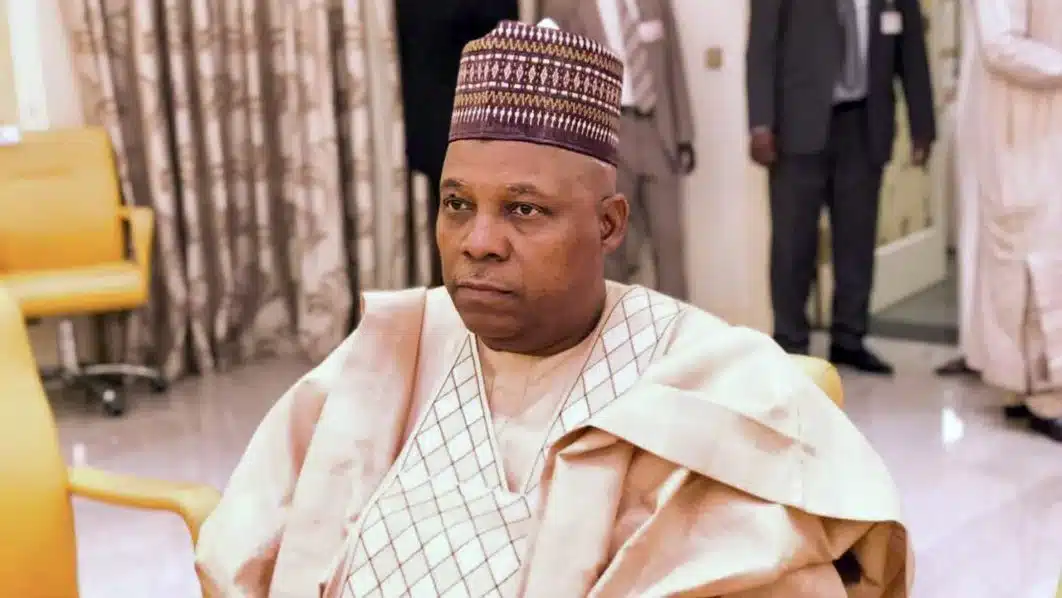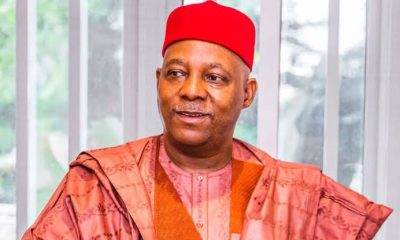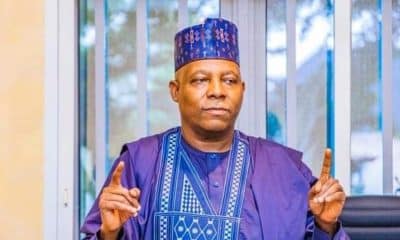Nigeria News
Terrorism Responsible For Hardships In North East – Shettima

Vice President, Kashim Shettima, on Friday blamed the challenges endured by residents in the North East on the actions of terrorists in the area.
Shettima, who lamented that terrorism had plagued the region for long, expressed optimism that the scourge would be defeated.
The VP, whose speech was read by the Senate President, Godwill Akpabio, at a book launch titled “Terrorism and Counter-Terrorism in North-East Nigeria: Emerging Perspectives and the Imperative of Airpower” in Abuja, said peace could be restored to the region if all stakeholders resolved to work together to address the scourge.
He said, “The North East region of Nigeria has been grappling with the scourge of terrorism for far too long. The brutal acts committed by extremist groups have inflicted immense suffering upon the innocent people of the region. But amidst this darkness, there is hope. Hope that through knowledge, understanding, and the collective efforts of all stakeholders, we can overcome these challenges and restore peace and stability to the region.”
The Chief of Air Staff, Air Marshal Hassan Abubakar, stated that the deployment of air power played a crucial role in degrading the terrorists. He noted that this deployment facilitated military operations, including surveillance, intelligence gathering, and successful attacks against the terrorists.
He said, “Today, we are glad to highlight the significance of Airpower in the fight against terrorism. With its unique capabilities and reach, Airpower has proven to be a game-changer in countering the asymmetric threats posed by terrorist organisations.
“The ability to swiftly project force, conduct surveillance, gather intelligence, and provide close air support has been instrumental in degrading the capabilities of these insurgents and terrorists.”
He acknowledged that the fight against terrorism is not one-dimensional, stressing that it necessitates a comprehensive approach that addresses the root causes of extremism, promotes social cohesion, and fosters economic development.
Abubakar emphasised that the insights and perspectives shared in this book could guide policymakers, military strategists, and practitioners in formulating holistic solutions that extend beyond the realm of military operations.










